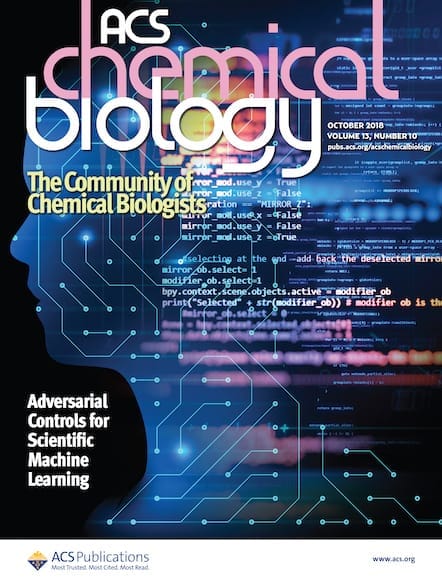A new Virtual Issue from ACS Sensors, ACS Chemical Biology, Bioconjugate Chemistry, and ACS Synthetic Biology highlights more than two dozen articles that capture the current state of the art in protein engineering for molecular sensors, an important but often underappreciated research area with a lot to offer the wider field of sensors. Proteins are […]

A new Virtual Issue from ACS Sensors, ACS Chemical Biology, Bioconjugate Chemistry, and ACS Synthetic Biologyhighlights more than two dozen articles that capture the current state of the art in protein engineering for molecular sensors, an important but often underappreciated research area with a lot to offer the wider field of sensors.
Proteins are key components in many molecular sensors, either as part of a sensor device or as stand-alone sensors. Molecular recognition (antibodies, ligand binding domains, DNA-binding proteins, enzymes) and signal generation (reporter enzymes, fluorescent proteins, polymerases) are integrated into a single sensor protein in stand-alone sensors, rendering these sensors attractive as genetically encoded sensors for intracellular sensing and as sensor proteins for point-of-care diagnostics.
Key topics in this Virtual Issue include:
- The development of genetically encoded fluorescent sensors that can be used for intracellular live-cell imaging
- Allowing real-time monitoring of cellular drug uptake and/or membrane permeability with semisynthetic fluorescent sensor proteins
- Protein engineering’s role in many other sensor formats, such as next-generation DNA sequencing
- Using proteins in optogenetics, a field where researchers combine light and genetically engineered photoreceptors to precisely control certain biological processes
- The use of biological sensors is the study of proteostasis, the process of cellular stress disrupting the homeostasis of proteins
- And more!
“The articles selected in this virtual issue represent persuasive examples of how protein engineering and synthetic biology can contribute to the sensor field. The engineering of proteins has enabled many breakthroughs in biosensing with improved functionality, and we are convinced that protein engineering will continue to play a crucial role in the development of new biosensor technology,” write Maarten Merkx, Associate Editor of ACS Sensors, Bradley Smith, Associate Editor of Bioconjugate Chemistry, and Michael Jewett, Associate Editor of ACS Synthetic Biology, in an editorial for the issue.
